Mubarak Chastises Arab States for Not Negotiating With Israel
Delivering a Labor Day speech in Cairo that is broadcast on Egyptian radio, Egyptian President Hosni Mubarak discusses issues relating to the peace process.
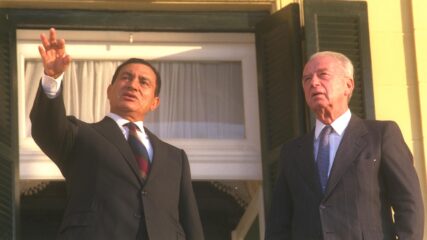
Delivering a Labor Day speech in Cairo that is broadcast on Egyptian radio, Egyptian President Hosni Mubarak discusses issues relating to the peace process.
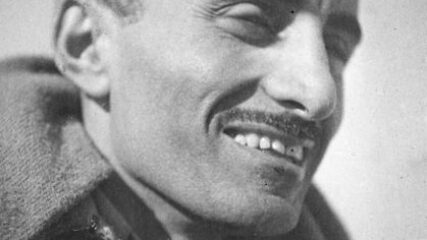
August 12, 1991 Yeruham Cohen, an Israeli intelligence officer known for his friendship with Egypt’s Gamal Abdel Nasser, dies at age 75. Cohen was born into a Yemeni family in Tel Aviv in 1916 and…

Moshe Dayan, Israel’s iconic military and political leader, passes away from a heart attack in a Tel Aviv hospital at the age of 66.
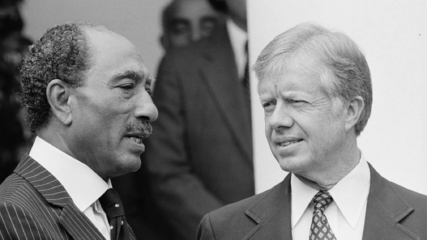
After Egyptian President Anwar Sadat’s diplomatic opening with Israel, almost all Arab states publicly criticized his engagement with Jerusalem.

Sixteen months after Egyptian President Anwar Sadat’s historic visit to Jerusalem and Knesset address, the Egyptian-Israeli Peace Treaty is signed at the White House in Washington.
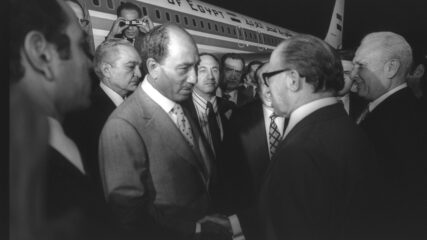
Egyptian President Anwar Sadat lands in Israel for a historic 36-hour visit, most of it spent in Jerusalem.
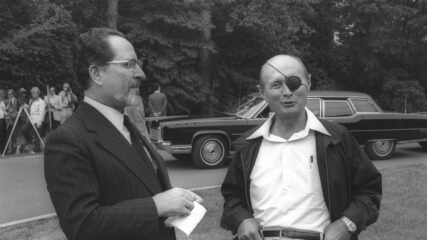
Israeli Foreign Minister Moshe Dayan conducts secret talks with Egyptian Deputy Prime Minister Hassan Tuhami in Morocco.
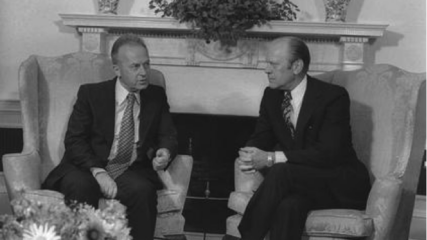
After a breakdown in diplomatic talks between Gerald Ford and PM Yitzhak Rabin, seventy-six Senators sign a letter to the President stressing the importance of both military and economic assistance to Israel.
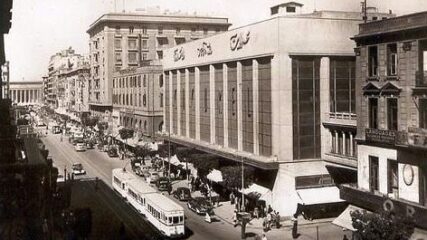
Former Egyptian Olympic fencer and leader of the Cairo Jewish community, Salvator Cicurel passes away.
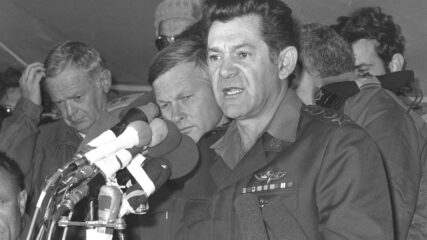
With U.S. assurances, Israel and Egypt agree to a buffer zone between their forces in the Sinai, moving toward what both sides wanted: the return of the peninsula for Egypt, peaceful relations for Israel.
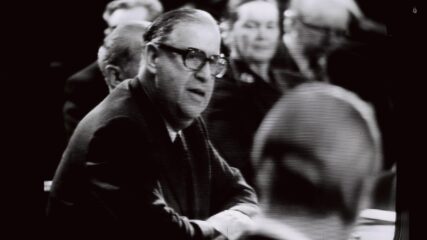
Convened under the co-chairmanship of the United States and Soviet Union, the Geneva Middle East Conference is “aimed at establishing a just and durable peace in the Middle East.”
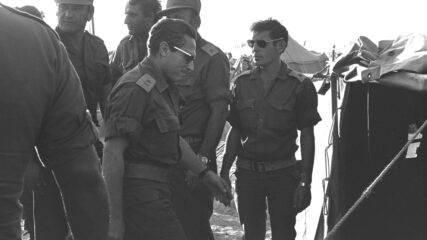
The Kilometer 101 Six-Point Agreement focuses on the maintenance of a cease-fire between Israeli and Egyptian forces, the movement of non-military supplies, the use of U.N. supervision, and exchange plans for prisoners of war.
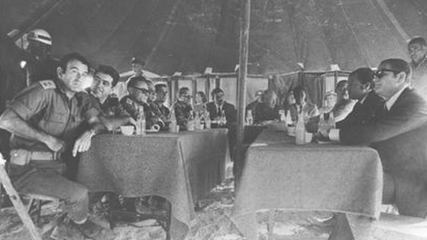
At the end of the October 1973 War, after several miscommunications, the first Egyptian-Israeli Military Talks between Generals commenced. These talks take place at 1am in Israeli-controlled territory, 101 kilometers from Cairo.

Hafez Ismail and Henry Kissinger conduct secret meetings. Egyptian President Sadat had decided to appoint veteran diplomat Ismail to a newly created position, Egyptian National Security Adviser, in 1972.
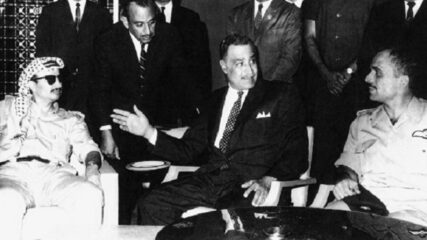
September 28, 1970 Egyptian President Gamal Abdel Nasser dies of a heart attack at age 52 after experiencing symptoms while returning from ceremonies marking the end of an Arab summit, in which he brokered a…
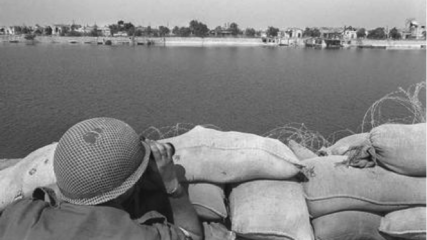
Israel, Jordan and Egypt finally signed a ceasefire, ending the 1967-1970 War of Attrition.

August 23, 1969 Egyptian President Gamal Abdel Nasser, who has adopted devout Muslim observance since losing the June 1967 war to Israel, responds to the arson attack on Al-Aqsa mosque two days earlier by calling…
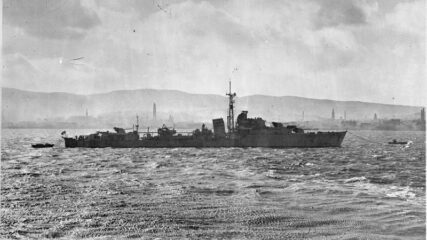
The Israeli destroyer INS Eilat is sunk in the Mediterranean in international waters off Port Said by Soviet-made missiles launched by Egyptian missile boats.
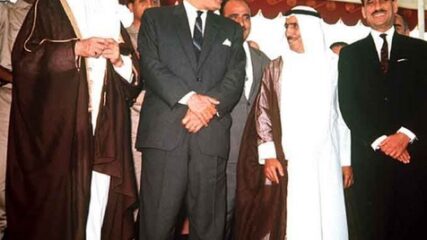
The Fourth Arab League Summit convenes in Khartoum, Sudan. Participants agree that all measures should be taken to regain lands controlled by Israel after the War, and that the oil-rich countries would finance an increased Arab military presence in the region.
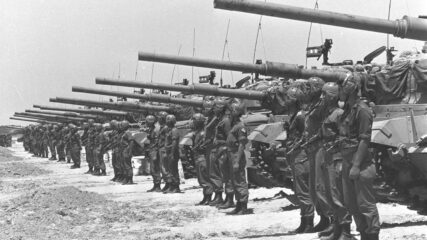
Egyptian President Gamal Abdel Nasser feared that Israeli troops would gather on the Egyptian border and felt compelled to uphold the mutual defense pact he had signed with Syria. On May 19, Nasser banned the 3,500 UNEF troops from Sinai so that he could mobilize Egyptian forces without interference.
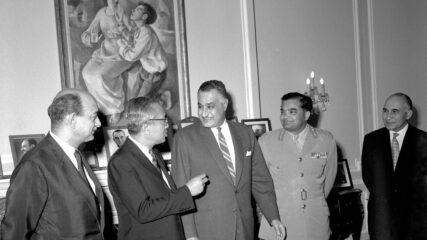
May 16, 1967 Egyptian President Gamal Abdel Nasser requests that the United Nations withdraw its peacekeeping troops from the Sinai, clearing an obstacle to war between Israel and its Arab neighbors. The Six-Day War begins…

November 4, 1966 Egypt and Syria sign a mutual defense treaty and create a joint military command. The move comes amid constant low-level violence on the Israeli-Syrian border, characterized by Syrian guerrilla raids and shelling…
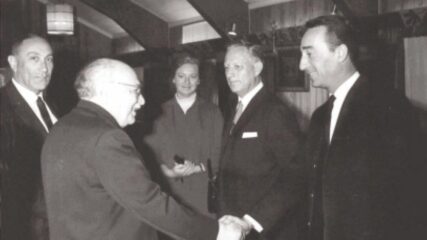
March 7, 1965 Egyptian authorities release details about the arrest Feb. 22 of German-Israeli spy Wolfgang Lotz and his wife, Waldrud, on espionage charges. Some reports say Lotz’s arrest was part of a roundup of…

Prime Minister David Ben-Gurion resigns as a result of the controversial, covert operation in Egypt, setting the stage for new elections in the summer of 1961.